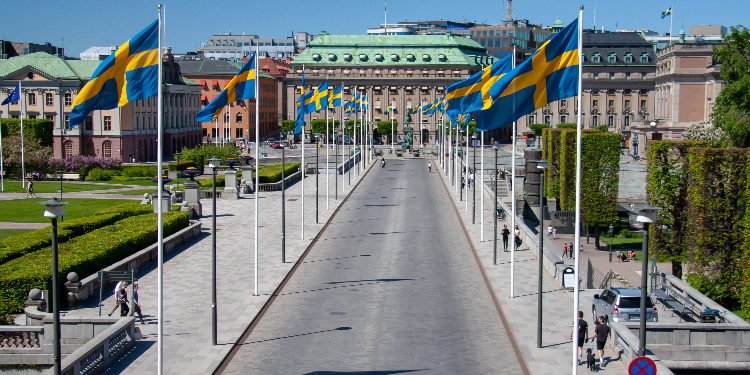
Are there lessons to be learned from the recent riots in Sweden? Yet, the country is renowned for its good quality of life, especially for expatriates. There were clashes in many towns in Sweden during Easter week as the far-right political party and rioters challenged the police. Since then, the situation seems to have calmed down, but Swedes are left with many unanswered questions. Where has the integration of immigrants failed?
Four days of urban violence
Initially, the protests were aimed at the far right, more specifically, against the anti-Islam party of Rasmus Paludan who is known for his provocative nature and has been burning Qurans since 2017. With his party, they toured several cities in Sweden. But the counter-offensive degenerated into violent clashes between rioters who had infiltrated the demonstrators and the police. Stones were thrown at the police and firefighters, and a lot of looting, damage to public property, police vehicles and burned individuals, etc., were reported. This situation lasted four days, and the clashes were particularly violent in Norrköping and Linköping, two cities with a strong Muslim community. But the Muslim population condemns these acts of violence.
According to official figures from the Swedish police, 40 people were injured, including 26 police officers. Physical damages amount to at least one million euros. Passers-by, collateral victims, witnessed rare violence and are physically and psychologically traumatized. Many of them still find it hard to believe that their town, and even their country, has been the scene of such a disaster, especially since Sweden has been among the world's most peaceful countries for many years. Such acts are condemned by politicians as well, although their observations and conclusions differ. According to Social Democratic Prime Minister Magdalena Andresson, “Integration has been too weak as the country experienced massive immigration".
Riots in Sweden: Failure of integration or failure of the state?
Experts welcome the straightforward tone used by the Prime Minister. In a press conference, she claimed that these riots result from a failing migration policy, where "parallel worlds" now coexist without sharing anything. Obviously, not everyone shares the same views. Still, the country itself has to be held accountable for its migration policy. For these experts, there's more to these issues than mass immigration and poor integration masks the real problems. In fact, there were riots in 2020 also. So the real question is how to achieve a gradual shift in social-democratic thinking on immigration. The way in which Sweden has given impetus to its migration policies needs to be questioned. For this, all the actors, including politicians and civil society, have to come together to find real solutions to the crisis.
Where the Swedish Migration Board has failed
Many experts are holding Sweden responsible for its "laxity" and an "overly generous" policy towards foreigners without really considering the issues underlying immigration. Today, 19% of the Swedish population is foreign-born. Far-right parties define this as an invasion, especially by people from the Middle East. But it's worth noting that many of these foreign-born individuals are Finns. The migration crisis of 2015 broke the Swedish "moral pact", according to which the State had to welcome the populations. So in 2015, Sweden welcomed some 163,000 asylum seekers and thus became the most "generous" country in this regard among its population of 10 million at the time.
However, the outcome of such generosity isn't as expected. No follow-up or any kind of support was provided to these asylum-seekers. Unfortunately, Sweden came up in the form of a savior but ended up in a trap. In 2016, tougher rules for asylum applications were introduced, and waiting times became longer. Restrictions on family reunification were also introduced. Again, there were considerable consequences on immigration, such as defining illegal and legal immigrants.
Although Sweden keeps on seeking international talent, they are also bearing the brunt of an inconsistent and overwhelmed administration. The Migrationsverket, the Swedish Migration Board, has been facing a lot of issues since 2015. At the same time, the "kompetensutvisningar", "expulsion of skills" was implemented. Foreign talents were expelled for futile reasons, often simple administrative formalities beyond their control, or settled with their employer. Unfortunately, this policy still exists. International media even suspect the Swedish Migration Board of inventing rules to prevent immigrants from returning.
Conclusion
Therefore, the recent riots in Sweden are not the direct consequence of massive immigration, but rather proof that the country is facing difficulties to build and strengthen its immigration policy. From "lax", the Swedish policy abruptly shifted towards a very restrictive system. In 2020, the social-democratic/ecological government welcomed only 23,000 immigrants. The Covid alone does not explain this massive decline. But the Migrationsverket was never questioned on these issues. On the contrary, a dangerous amalgam was made between the rise of crime and immigration. Researchers agree that Sweden has to go back to the roots of its policies to solve this crisis.



















